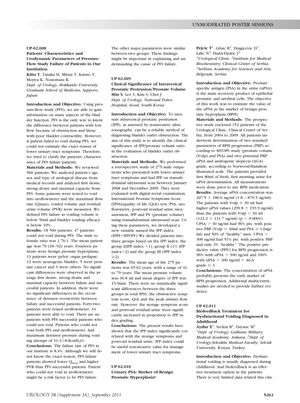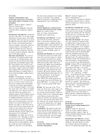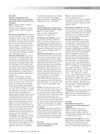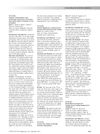Urinary PSA: Marker of Benign Prostatic Hyperplasia?
September 2011
in “
Urology
”

TLDR Urinary PSA could be an early marker for enlarged prostate.
The document presents a study that aimed to evaluate the potential of urinary prostate-specific antigen (uPSA) as a marker for benign prostatic hyperplasia (BPH). The prospective study included 152 patients from the Urological Clinic at the Clinical Center of Serbia, who were tested for uPSA levels and other standard parameters of BPH progression. The results showed that patients with a prostate volume (Volp) of ≥ 30 ml had significantly higher uPSA values (299.8 ± 193.9 ng/ml) compared to those with Volp < 30 ml (122.2 ± 131.7 ng/ml). Additionally, a uPSA level > 300 ng/ml was associated with a positive predictive value (PPV) for BPH progression of 96%, and when combined with androgenic alopecia (AGA) grade > 3, the PPV reached 100%. The study concluded that uPSA concentration might serve as an early marker for BPH progression, but emphasized the need for additional multicentric studies to corroborate the findings.




